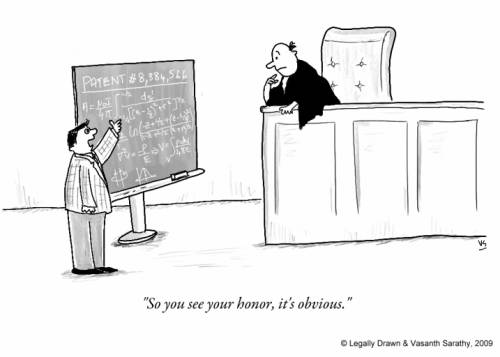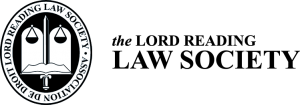NEWSLETTER – September 2010
David Stolow, President
Allen Mendelsohn, Dorith Toledano, and Larry Markowitz, Editor(s)
President’s Message
David Stolow

Dear Friends,As we celebrate the Jewish New Year, we are also celebrating the beginning of a new season of the LRLS, which has already been marked by an important change. While we have lost our home of over 50 years, the Montefiore Club, we are pleased to announce that The Saint-James Club (1145 Union, corner René-Lévesque) will serve as our venue for 2010-2011. A significant amount of time was put in over the summer to find the right venue and I would like to recognize the tireless efforts of the Society’s Vice-Presidents, Robin Schiller and Mara Greenstone, who worked with me on this project.Our Programme Committee has been putting together a terrific series of lectures for the upcoming season.As you know, on the occasion of our annual Alan B. Gold Advocacy Lecture, which will take place on September 21, 2010, we are honoured to welcome Judge Yves-Marie Morissette of the Québec Court of Appeal, whose talk is entitled “Querulous and Abusive Litigants, past and present”. CLE accreditation has been obtained for paid-up members. Just a reminder that we ask that you reserve by September 15, 2010. You can download the dinner invitation here.On the occasion of our second lecture, which will take place on Wednesday, November 10, 2010, we are thrilled to welcome Canada’s Privacy Commissioner, Jennifer Stoddart, for what will undoubtedly be an enlightening evening. More information about the event will follow, but please mark the date in your calendars. We are also working on other exciting events for this year, including a lecture by a leading U.S. attorney on the topic of the recovery of stolen art and an evening with Mr. Justice Thomas Cromwell of the Supreme Court of Canada that will take place in May 2011.In addition to a great venue and first-rate speakers, the missing piece to making our evenings a success is your attendance. I look forward to seeing you.Best wishes to everyone for a healthy New Year.Yours very truly,David Stolow PresidentLord Reading Law Society
Lord Reading’s Annual Seminar Revived: Topics in Criminal Law for Corporate Lawyers
Larry Markowitz
Towards the end of last season, the Society was pleased to host criminal lawyers Jeffrey K. Boro, Daniel Lighter and Annie Emond of the firm Boro, Polnicky, Lighter for a two-hour session entitled “Topics in Criminal Law for Corporate Lawyers”. This late afternoon event marked the resumption of the Society’s long-standing tradition of organizing an annual continuing legal education seminar. With the recent advent of CLE requirements at the Barreau du Québec, the Society decided the timing was right to once again hold such an event.
Our guest speakers provided us with a wide ranging overview of the field of criminal law, with a focus on those topics most likely to be encountered by corporate lawyers.
Me. Boro opened the seminar by covering several subjects:
The crime of “compounding of a criminal offence”
A criminal offence should not be concealed in exchange for consideration, nor should charges be dropped in exchange for payment. However, if the Attorney-General intervenes in an agreement to drop charges in exchange for valuable consideration, the crime of compounding an offence will not have been committed.
The right to remain silent
One who is detained or arrested by the police has the right to remain silent and to retain their counsel “of choice”. Moreover, the detainee is entitled to have the arresting officer “read them their rights” (just like in the movies!).
What to do when a client is subject to search and seizure
It is important to obtain a copy of the search warrant and to cooperate with the search. However the client need not (and generally should not) speak with the investigators.
Me. Boro also covered the rights of an employer to look at the contents of the hard drives of computers used by an employee at their place of work and he briefly discussed situations where a telephone conversation may be monitored. Basically, the rights of the employer in such situations depend on the employee’s expectation of privacy.
Jury duty
Me. Boro emphasized that a citizen should consider it an honour to be called to serve on a jury. That said, clients sometimes wish to avoid this “honour”. Me. Boro outlined several methods of achieving this goal (including being a judge, a lawyer or a firefighter), though as a practitioner in the field of criminal law and a believer in our justice system, he seemed to frown upon using these methods of avoiding jury duty.
Driving offences
Finally, Mr. Boro made us aware of new legislation providing for harsher punishments for driving offences, including harsher penalties for excessive speeding and driving under the influence. Most important, he advised, one should not refuse to take a breathalyser test, as this could mean losing one’s license for three years.
Sentencing
Next, Danny Lighter discussed sentencing. He covered the whole range of sentences – from conditional and absolute discharges to probation, to fines, to imprisonment in provincial penitentiaries, to imprisonment in federal penitentiaries.
Me. Lighter then discussed the concept of a restitution order by which the accused can be ordered to provide financial restitution to the victim of crime. He also covered forfeiture orders, whereby property that represents the proceeds of crime can be ordered to be forfeited by the accused.
Cyber-crime
To close the seminar, Me. Annie Emond discussed the cutting-edge field of computer crime. Interestingly, she noted, with imagination, one can actually commit all the “traditional” crimes in the Criminal Code from the comfort of one’s computer! In addition, there are certain crimes in the Criminal Code that are specific to the realm of computers. These include the spreading of computer viruses, such as “worms” or “Trojan horses”. Sending spam is not yet a criminal offence, but likely will be soon. Me. Emond discussed crimes relating to web content, such as child pornography and the corruption of morals by means of the materials posted to one’s website. She reminded us that online gaming is illegal, except when it is organized under the auspices of a provincial gambling authority, such as Loto-Québec.
She then rapidly went through a whole list of crimes that one can commit via the internet, including identity theft, the sale of illegal or non-existent objects via e-commerce channels (e.g. eBay) and cyber-bullying. Me. Emond described how the police of the 21st-century combat cyber crime and some of the challenges they face. For instance, the police use the Internet to obtain information on suspects through postings on social networking sites. They also seek to obtain search warrants for electronic content. However, is the content actually to be found on the hard drive of the suspect? Or, in this age of “cloud computing”, is the data actually to be found on a third party’s server located in another jurisdiction (e.g. on servers owned by Google or Facebook)?
Another challenge faced by police when applying for, or exercising, a search warrant is Section Eight of the Canadian Charter of Rights and Freedoms, which provides everyone in Canada with protection against unreasonable search and seizure. The jurisprudence teaches us that the key question in cases relating to cyber-crime is whether the computer user had a reasonable expectation of privacy or not.
This informative session opened the eyes of the corporate lawyers in attendance to the growing list of topics that make up the field of criminal law, particularly in this age of rapid technological change, and reminded us that even corporate lawyers must have a general knowledge of the Criminal Code, as our clients may occasionally “cross the line” and break the law.
In light of the success of this seminar, we look forward to the Lord Reading Law Society’s continuing education seminar occurring on a more regular basis.
Continuing Education Events
Allen Mendelsohn
The Society is pleased to list CLE events which may be of interest to our members
The English Speaking Section of the Bar of Montréal will be presenting its second annual conference on “Trial Practice Do’s and Don’ts, Hot Tips from the Experts” on Thursday, November 11, 2010 from 4:00pm -6:00pm in room 5.15 (Salle Jules Deschenes) of the Court House.
The programme will feature a distinguished panel of three senior trial lawyers, Messrs. George Hendy, William Brock, and Suzanne Pringle and the Honourable Justice Joel Silcoff of the Quebec Superior Court, who will each offer two trial practice tips (1 “do” and 1 “don’t”), which may enhance or detract, as the case may be, from the trial lawyer’s effectiveness. Me Ian M. Solloway, Chair of the English Speaking Section of Bar of Montreal and a Past-President of the Society will again moderate the conference, which has been approved for CLE accreditation (2 hours). Registration will be available in the coming weeks via the website of the Bar of Montréal.
Society Humour

News from the Mishpuchah
Mazel Tov
- To Society Executive members Morton Besner and David Franklin, and member Arnold Lechter, for being recognized at the Rentrée Judiciare for their 50 years at the Bar
Condolences
- To the family of Alex Konigsberg Q.C. who passed August 9th



